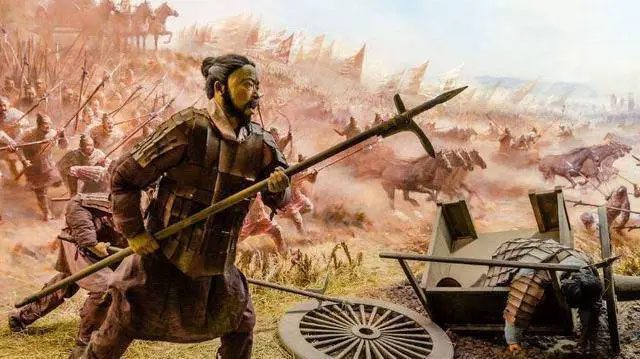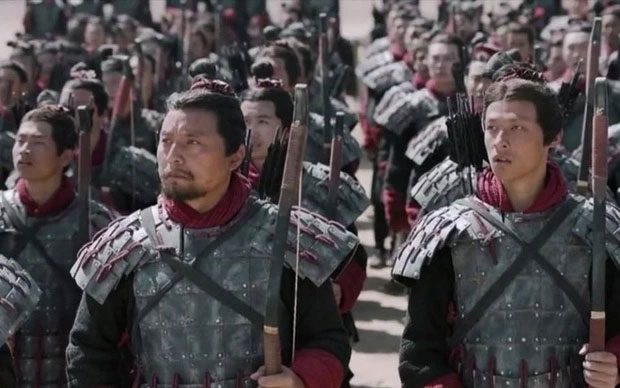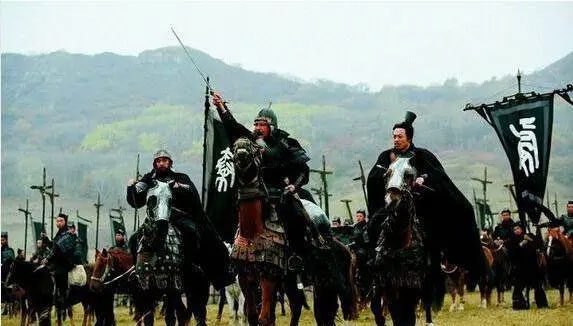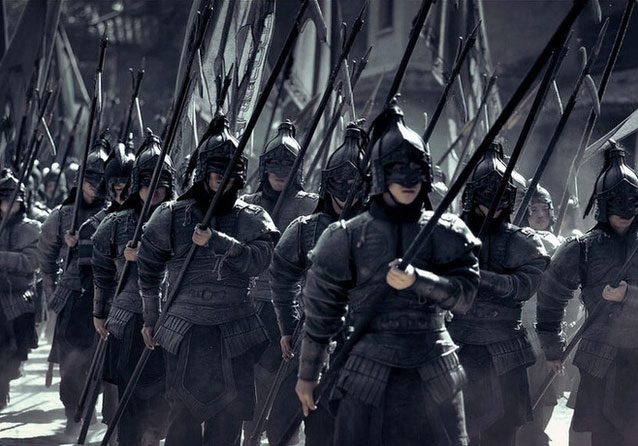During the feudal era, many wars broke out over the struggle for power among political factions. Additionally, wars could arise from popular uprisings against a decaying ruling regime. In fact, every war involved both brave warriors and timid recruits. However, regardless of whether they were seasoned veterans or frightened novices, it was rare for anyone to dare to desert and flee from the battlefield.
Any warrior entering the battlefield could face death at any moment. So, why did ancient people prefer to die in battle rather than run away?

Ancient soldiers did not dare to flee the battlefield for very practical reasons.
Why Did Ancient Soldiers Not Dare to Flee the Battlefield?
In fact, the reasons are quite simple and practical.
Firstly, military service was compulsory, and citizens were required to comply. In ancient times, conscription was implemented as early as the Shang Dynasty (circa 1766 BC – 1046 BC) and the Zhou Dynasty (circa 1046 BC – 256 BC). This was a mandatory military service system.
Ordering young men to enlist was considered one of the most important sources of military strength. In other words, whenever war broke out, every household was obligated to contribute soldiers.

In ancient times, the men in each family were required to serve in the military.
Moreover, during the Sui and Tang Dynasties, there were even stricter recruitment requirements. Specifically, the most important requirement for recruits was to have good physical condition. In reality, most of these recruits volunteered for military service and received monetary rewards.
Notably, during the Ming Dynasty, Emperor Zhu Yuanzhang even enacted regulations that allowed prisoners to serve in the military. These prisoners, if they survived, would have the opportunity to join the army.
As a result, those who served in the military in ancient times could be ordinary citizens who volunteered, some from families with military backgrounds, but there were also many criminals. But why did these individuals prefer to fight to the death rather than flee?

If soldiers dared to flee the battlefield, not only would they be in trouble, but their families back home would also suffer.
Secondly, the reason soldiers did not dare to flee the battlefield was due to the brutal punishments of ancient times. For example, during the Qin Dynasty, military law stated that every five soldiers formed a unit. Therefore, if one person deserted, the other four would be punished with two years of forced labor. This method of punishment ensured that all soldiers monitored each other to ensure their own safety.
By the time of the Eastern Han Dynasty, the law stipulated that if a soldier deserted, officials could arrest and torture their family members to find out the deserter’s whereabouts. Especially when Cao Cao held power, he established military laws stating that the parents, wives, children, and siblings of deserters would also be implicated. These individuals could become “slaves” or be executed.

Deserters could be executed during the Tang Dynasty.
During the Tang Dynasty, it was decreed that anyone who dared to desert during wartime could be executed on the spot. In peacetime, those who deserted would be hanged or exiled.
By the end of the Tang Dynasty, many citizens were reluctant to join the military. However, under the reign of Emperor Taizu of the Later Liang, soldiers who enlisted would have facial tattoos, and any deserter would be executed on the spot.
During the Ming Dynasty, a new regulation was introduced. Deserters would not be punished based on the time of desertion but rather on the number of times they fled. Specifically, if they deserted for the first time, they could receive 80 lashes. By the second instance, they would be punished with 100 lashes or exiled. If they dared to flee for the third time, these reckless soldiers would be executed immediately.
By the time of the Qing Dynasty, if just one soldier in the camp deserted, he would be punished by execution.
Overall, these strict punishment regulations were designed to compel soldiers to obey and deter them from fleeing. Additionally, military leaders were well aware of the families and hometowns of their soldiers. Therefore, desertion was nearly impossible. Even if one managed to escape, their family and comrades would be implicated.
Furthermore, to escape from the battlefield or camp without being detected, soldiers only had one way to move: by walking. This limited their ability to travel long distances.
As the saying goes, “The orders of the army are as solid as a mountain.” This means that the commands of the commander are as unyielding as mountains, and military orders once given are unchangeable. Soldiers must obey. The army must be organized and disciplined. Only in this way can the troops achieve victory in battles.


















































